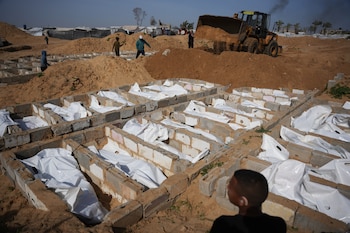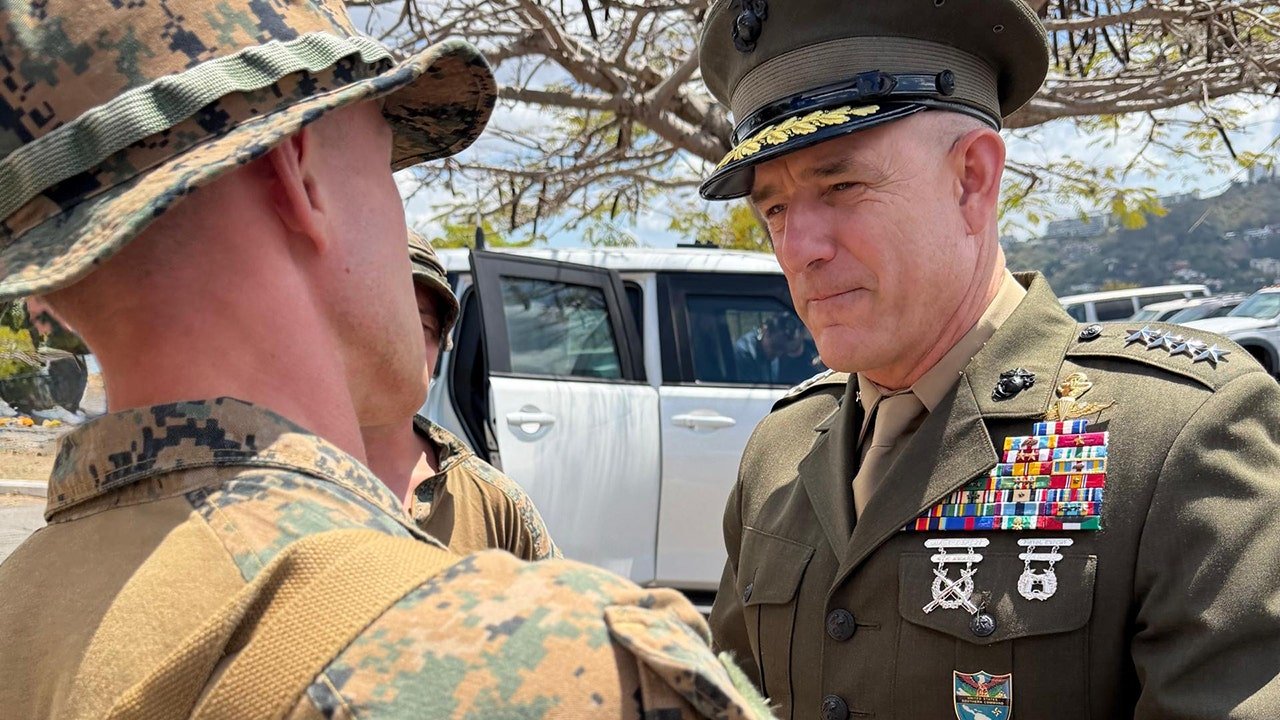INTERNACIONAL
Infobae en Sudán: entre la traición y el miedo, un soldado deserta para contar su verdad

(Puerto Sudán, enviado especial) “Si alguien se entera que hablé con un periodista, no volveré a ver la luz del sol”. El mensaje llega a través de Telegram, apenas la noche anterior de que comience el reportaje, a la espera de un avión en Etiopía para aterrizar en Sudán al día siguiente. Envía una seguidilla de mensajes atolondrados, está asustado y dice que su familia está amenazada, pide ayuda. Entre una advertencia y otra, el hombre –sudanés, poco más de treinta años, militar exiliado de la zona de Darfur– exige encriptar la conversación. Es la única condición para comenzar a contar su historia.
Dice: “Soy un soldado sudanés, lo sé todo sobre Sudán. No estoy del lado del ejército ni de las Fuerzas de Apoyo. Sus palabras son criminales. Solo diré la verdad”.
Decido escucharlo.
Sudán está en guerra desde hace dos años. El 15 de abril de 2023 hubo un quiebre entre dos generales y comenzaron los tiroteos en Jartum. Las armas del país se dividieron en dos: las del gobierno de facto y las de las Fuerzas de Apoyo Rápido, una fuerza paramilitar. Hasta entonces, ambos bandos tenían soldados desplegados en el territorio. El hombre del chat en el 2019 fue enviado en Arabia Saudita con la misión de pelear junto al ejército de Mohammed Bin Salman en contra de las fuerzas hutíes de Yemen. Lo hizo, pero de ese tiempo alberga secretos que dice no poder decir hasta no recibir asilo en alguna otra región del mundo.
“Se desató el infierno, y mi familia quedó atrapada entre dos fuerzas”, dice. Su mujer quedó en la zona de Darfur, con riesgo de ser ejecutada si él da la espalda a las Fuerzas de Apoyo Rápido, asegura. Su madre y hermanos están en Jartum, a riesgo de ser detenidos o asesinados por el ejército sudanés, que reconquistó la capital y están exterminando a todo aquel que tenga vínculos con los rebeldes. “No tengo salida, necesito ayuda. ¿Puedes ayudarme? ¿Dónde estás?”.
Llegados a este punto debo aclarar la cuestión del nombre. Por seguridad, está agendado como “Amigo Sudanés”. Nos conocimos unos meses antes en Jeddah, Arabia Saudita, comiendo pollo frito en las calles de un barrio nuevo. Su manera de hablar en ese entonces era distinta, ahora en cambio no parece el hombre gentil y sin apuro que se sentó a mi lado en la puerta de Al Baik, el KFC saudí, y me invitó una Coca Cola. Tiene otro ritmo, otra urgencia, e interrumpe sus propias líneas argumentales con desesperación. “¿Dónde estás?”, insiste.
Dudo, pienso que es demasiado extraño que haya vuelto a aparecer justo el día antes de que entrara a su país. ¿Es posible que el destino combine así el calendario de dos vidas? ¿Realmente es casual que me escriba la noche antes de entrar a Sudán? ¿No estará acaso sacándome información? Contengo un rato mis respuestas. Si fuera una ficción, resultaría inverosímil. Pero la ficción necesita tener lógica, la realidad no.
–Puedo darte videos –dice.

Sigue solo: “Puedo darte videos. Puedo mostrarte lo que están haciendo. Es un infierno, perdieron la cabeza. Yo no estoy ni con uno ni con otro, solo quiero salir de este problema. ¡Pero dime cómo!”.
Un rato después llegan los videos. Ejecuciones, torturas, decapitaciones, violaciones, la brutalidad hecha carne, la vida en Sudán bajo dos años de guerra.
–Necesito saber tu nombre –le digo–. Necesito saber más de vos.
Su respuesta se llena de melodrama. “¿Has olvidado mi nombre?”, dice, decepcionado. Le explico que lo tenía agendado con un apodo. La pantalla muestra unos puntos suspendidos que indican que está escribiendo. Luego desaparecen y aparece una frase en árabe: لقد نسيت اسمي.
La paso por el traductor como quien cifra un secreto, pero el resultado solo acrecienta el misterio: “Olvidé mi nombre”.
Durante dos días dejamos de hablar. El avión aterriza en Puerto Sudán poco después del mediodía. Es un aeropuerto pequeño que se convirtió en central. Está rodeado de algunas cabras vagabundas y de bases militares.

El Grupo Sudanés para la Defensa de los Derechos y las Libertades asegura que alrededor de 50.000 personas están desaparecidas en Sudán desde que comenzó la guerra. Un grupo de investigación de una universidad de Londres estima en 60.000 el número de víctimas fatales. Mientras que Hemedti –líder de las Fuerzas de Apoyo Rápido– acepta haber perdido territorio en Jartum y Omdurman, las organizaciones internacionales denuncian a sus fuerzas por crímenes de guerra. Al mismo tiempo, un colectivo de abogados sudaneses llamado Emergency Lawyers acusan al ejército oficial de atacar un mercado en la zona de Darfur y asesinar a un gran número de civiles, pero no pudieron verificar cuántos. Las estimaciones van de 61 y 270 muertos y, como todo en esta guerra, fue registrado por algunos videos que circulan en redes sociales y que nadie quiere ver.
Las acusaciones cruzadas no se detienen, a cada atrocidad le corresponde su contracara. Olvidé mi nombre dice que Sudán está gobernada por monstruos y habitada por fantasmas. Pide una y otra vez por su familia, pero no es capaz de dar precisiones: podría derivar en una ayuda pero también en un riesgo. No sabe qué hacer ni por qué habla con un periodista. “Mi historia es grande, cansadora y triste”, escribe.
Los siguientes días serán en Puerto Sudán escuchando testimonios. Hay más de 40.000 familias refugiadas allí, cerca de 100.000 personas instaladas en campos improvisados, muchos sin acceso a agua potable y en riesgo de contraer cólera o malaria. Olvidé mi nombre está del otro lado del Mar Rojo, en alguna zona al sur de Arabia Saudita, peleando en un frente ajeno mientras intenta escapar de todas las guerras. Suplica que escribamos su historia para que el mundo sepa que nadie es bueno dentro de Sudán. “Puedes contar mis palabras y ocultar algunos detalles, ese soy yo ahora. Si salgo de aquí, podré contar mi historia yo mismo en el futuro. Sin duda lo haré, pero debo vivir primero”, dice, y repite la letanía: si se enteran que hablé con un periodista, no volveré a ver la luz del sol.
–¿Quiénes? –insisto, inútilmente, una vez más.
OMN tiene más miedo que los desplazados que siguen en Sudán. Ellos, viviendo bajo el sol rabioso, entre el desierto y las moscas, aún sonríen. No entiendo por qué, pero en el desierto hasta un cabello tiene su sombra. OMN no parece sonreír del otro lado del teléfono. Durante años fue parte de las Fuerzas de Apoyo Rápido, sabe de lo que son capaces, quién sabe si alguna vez él mismo fue capaz de eso. Quién sabe si es quien dice ser, mientras pregunta dónde estoy y manda más videos. Los mandará durante muchos días, videos y fotografías que él mismo dice no querer ver.
Escribirá cada tanto vía Telegram. Pequeña súplicas que describen el veneno de Sudán.
–No hay piedad, no hay humanidad, solo muerte, muerte, muerte… ¡Maldita África!
corresponsal: Enviado especial a Puerto Sudán
INTERNACIONAL
Trump hails Vance and Rubio as ‘extraordinary’ duo: hammer and velvet glove

NEWYou can now listen to Fox News articles!
President Donald Trump lauded Vice President JD Vance and Secretary of State Marco Rubio as «extraordinary» statesmen who complement each other’s strengths as they take the MAGA platform to the world stage.
Trump’s newly formed Board of Peace — an international forum aimed at funding Gaza’s reconstruction and coordinating a postwar stabilization force — convened its inaugural meeting in Washington, D.C., Thursday with delegations from more than 40 countries participating. Trump lauded the pair as he addressed the massive body of foreign leaders and representatives.
The meeting comes just less than a week after Rubio flew to Germany and delivered a speech before the Munich Security Conference, which earned applause from conservatives at home as he railed against unchecked mass migration and how it is destabilizing Western civilization.
JD VANCE CALLS AOC MUNICH MOMENT ‘MOST UNCOMFORTABLE 20 SECONDS OF TELEVISION’ HE HAS EVER SEEN
Vice President JD Vance and Secretary of State Marco Rubio, as well as their wives, attended the Olympics opening together earlier in 2026. (Kevin Lamarque / POOL / AFP via Getty Images)
Vance led the U.S.’ delegation to the Security Conference in 2025, and delivered a speech that was viewed as a defining moment for the newly inaugurated Trump White House and for Vance himself on the world stage. Vance warned in his 2025 speech that European governments and institutions are drifting toward censorship, citing policies he said police speech, curb religious expression and pressure online platforms.
Trump lauded both of the administration leaders in his remarks, explaining that while the pair approach diplomacy «very differently,» the «result is the same.»
The president first celebrated Vance, remarking that he is «brilliant» and an excellent student.
RUBIO SHINES ON GLOBAL STAGE WHILE AOC, WHITMER, AND NEWSOM TAKE HEAT
«JD graduated in a four-and-a-half-year college in two years, and then he went to Yale, and he graduated at the top of his class, went to the military. Great. But when he went to Yale, there was one person that was marginally ahead of him. So he married her. Can you believe it? He married the person that was ahead,» Trump said, referring to second lady Usha Vance.

Usha Vance is pregnant with her fourth child. (Getty images)
Trump continued that Vance is «a brilliant guy and a great guy, and he’s been my friend,» before noting that he can be a «little bit tough on occasion.»
LIZ PEEK: AT MUNICH SHOWDOWN AOC SERVES WORD SALAD AS RUBIO CHANNELS STRENGTH
«We gotta slow him down just a little bit on occasion,» Trump said. «He says his mind.»
As for Rubio, Trump called him «the opposite extreme» of Vance.
DAN GAINOR: FROM SECRETARY OF STATE TO SECRETARY OF MEMES, RUBIO WINS OVER MAGA
«Now then we have the opposite extreme,» he said. «We have your friend sitting in the back. Your best friend. Sitting in the back is Marco. Marco does it with a velvet glove, but it’s a kill, right? The result is the same. They do it very differently,» he said.
Vance has previously called Rubio his «closest friend in the administration» or «best friend in the administration» in public remarks, including in October while on a podcast and again while speaking with Fox News earlier in February.
Trump went on to joke that Rubio did such an excellent job delivering his speech before the Munich conference he considered firing him.
«Marco, you really did yourself proud two days ago in Munich. In fact, so proud that I almost terminated his employ because they were saying, ‘Why can’t Trump do this?’ I do, but I say it differently. But Marco, don’t do any better than you did. please. Because if you do, you’re out of here.»

Secretary of State Marco Rubio attends a bilateral meeting with China’s Foreign Minister (not in picture) in Munich, Feb. 13, 2026, on the sidelines of the Munich Security Conference. ( Alex Brandon / POOL / AFP via Getty Images)
«I want my guys to do great. And the acclaim he’s gotten and they claim JD gets is, is great,» he continued.
The praise follows Rubio and Vance joining a bilateral meeting with Prime Minister Giorgia Meloni earlier in February in Italy, and Vance leading a delegation that included Rubio during the Olympics’ opening ceremony in Milan.
Vance’s foreign policy profile became a point of media scrutiny earlier in 2026, when U.S. forces captured Venezuela’s Nicolás Maduro. Vance did not join Trump at Mar-a-Lago in Florida to monitor the operation, while Rubio was with the president.
Vance’s office previously brushed off report over his absence, citing that Trump and Vance limit the «frequency and duration» of time they spend together outside the White House due to «increased security concerns.»
CLICK HERE TO DOWNLOAD THE FOX NEWS APP
«I think it’s so interesting the media wants to create this conflict where there just isn’t any conflict,» Vance told Fox News earlier in February of the media scrutiny.
«Marco’s doing a great job. I’m trying to do as good of a job as I can. The president’s doing a great job. We’re going to keep on working together,» he added.
donald trump,marco rubio,jd vance,germany
INTERNACIONAL
La administración tecnócrata de Gaza anunció el despliegue de 5.000 policías en 60 días para reemplazar a Hamas

REUTERS/Ramadan Abed
Alí Shaath, economista palestino y director de la Comisión Nacional para la Administración de Gaza (CNAG), anunció el jueves durante la reunión inaugural de la Junta de Paz en Washington el despliegue de una fuerza policial palestina de 5.000 agentes en un plazo de 60 días.
El anuncio se enmarca en la segunda fase del plan de 20 puntos del presidente Donald Trump para Gaza, que busca trasladar el control del enclave devastado desde el grupo terrorista Hamas hacia una estructura de gobernanza internacional supervisada directamente desde Washington.
Shaath, ex viceministro de la Autoridad Palestina, reconoció que la CNAG opera en condiciones extremadamente difíciles. Gran parte de la Franja resultó gravemente dañada tras dos años de guerra que dejaron al menos 70.000 palestinos muertos, según cifras de organismos palestinos confirmadas también por Israel.
La nueva fuerza policial responde a la primera de cuatro prioridades definidas por la comisión tecnócrata: restaurar la seguridad bajo una sola autoridad, una sola ley y una sola arma. Las otras tres áreas prioritarias incluyen reactivar la economía, garantizar ayuda humanitaria sostenible y restablecer servicios básicos como electricidad, agua, salud y educación.
El director de la Junta de Paz, el diplomático búlgaro Nikolai Mladenov, informó que unas 2.000 personas ya solicitaron unirse a esta fuerza de transición, que será entrenada en Egipto y operará bajo la autoridad civil de la CNAG. Mladenov estableció como condición esencial que todas las facciones armadas en Gaza sean desmanteladas y que las armas queden bajo control de una autoridad civil única. Para ello, afirmó, resulta imprescindible la implementación completa del plan de 20 puntos de Trump.
La Junta de Paz, presentada por Trump como una alternativa a Naciones Unidas, celebró su primera reunión con la participación de casi 50 países, superando los 27 miembros fundadores. Sin embargo, la ausencia de potencias europeas occidentales y el rechazo del Vaticano, México y varios países latinoamericanos evidencian las fisuras en el respaldo internacional al mecanismo impulsado por Estados Unidos.
La junta está dirigida por una estructura ejecutiva que incluye al secretario de Estado Marco Rubio, el yerno de Trump Jared Kushner, el exprimer ministro británico Tony Blair y el enviado especial Steve Witkoff, entre otros.
El plan de 20 puntos, presentado por Trump en septiembre de 2025 junto al primer ministro israelí Benjamín Netanyahu, establece un alto el fuego condicionado al desarme completo de Hamas, la liberación de rehenes israelíes y la creación de una zona libre de terrorismo en Gaza.
REUTERS/Mahmoud Issa/Fotografía de archivo
El documento contempla la formación de un gobierno de transición bajo supervisión internacional, un programa masivo de reconstrucción y, eventualmente, la posibilidad de avanzar hacia un Estado palestino, aunque Netanyahu ha rechazado categóricamente esta última perspectiva.
El principal obstáculo para la implementación del plan radica en el desarme de Hamas, que mantiene el control efectivo de Gaza desde 2007. Israel fijó un plazo de 60 días para que el grupo terrorista entregue todas sus armas, incluidas las ligeras como fusiles AK-47. El Departamento de Estado estadounidense reconoció que la desmilitarización constituye el desafío central del proceso.
Sin embargo, Khaled Meshaal, alto dirigente de Hamas, rechazó el desarme total y propuso únicamente un congelamiento de las armas, argumentando que desarmarse equivaldría a despojar al pueblo palestino de su alma.
La tensión se agrava por las continuas violaciones del alto el fuego. El ejército israelí mantiene el control de más del 50% del territorio gazatí y ha dejado claro que no renunciará al objetivo de desmilitarización total de la Franja. El ministerio de Salud de Gaza, operado por Hamas, reportó al menos 601 palestinos muertos por fuerzas israelíes desde el inicio de la tregua en octubre de 2025.

(AP Foto/Abdel Kareem Hana)
Mladenov advirtió que enviar al comité tecnócrata mientras persisten los enfrentamientos solo garantizará su inefectividad. El diplomático búlgaro anunció la creación de una Oficina del Alto Representante para Gaza, que él mismo encabezaría provisionalmente, con el objetivo de eliminar los obstáculos que enfrentará la CNAG al asumir el control civil y administrativo del enclave.
Trump anunció que Estados Unidos contribuirá con 10.000 millones de dólares para la reconstrucción de Gaza, mientras que nueve países árabes comprometieron otros 7.000 millones. Indonesia, Marruecos, Albania, Kosovo y Kazajistán ofrecieron tropas para la Fuerza Internacional de Estabilización prevista en el plan, aunque ningún gobierno ha formalizado compromisos definitivos sobre el número de efectivos ni el alcance de su mandato.
El modelo propuesto recuerda experiencias de administración internacional en Timor Oriental, Kosovo, Bosnia e Irak. Sin embargo, la ausencia de representación palestina en la junta ejecutiva internacional y la imposición vertical de estructuras de gobernanza han generado escepticismo sobre la viabilidad del proyecto. La historia demuestra que cuando el diseño es excesivamente vertical y la legitimidad local resulta limitada, la estabilidad suele ser precaria.
La CNAG, integrada por 15 tecnócratas palestinos, carece de función política y se limitará a la gestión logística y administrativa civil.
Top Pictures,Military Conflicts
INTERNACIONAL
Top US military commander visits Venezuela, meets new leader following operation to capture Maduro

NEWYou can now listen to Fox News articles!
The head of the U.S. Southern Command traveled to Venezuela to meet with the country’s acting president just weeks after U.S. forces captured former leader Nicolás Maduro.
The trip on Wednesday, described as a surprise visit, was the first to Venezuela by a U.S. military delegation since the Jan. 3 raid to retrieve Maduro, according to Reuters.
«The commander of U.S. Southern Command, Marine Gen. Francis L. Donovan, Chargé d’Affaires to the Venezuela Affairs Unit, Ambassador Laura F. Dogu, and U.S. Acting Assistant Secretary of War for Homeland Defense and the Americas Joseph M. Humire met with Venezuelan interim authorities in Caracas,» U.S. Southern Command said in a statement.
«During the meeting, the leaders reiterated the United States’ commitment to a free, safe and prosperous Venezuela for the Venezuelan people, the United States, and the Western Hemisphere,» it added.
VENEZUELAN OPPOSITION LEADER MACHADO PRAISES TRUMP FOR DELIVERING ‘BERLIN WALL’ MOMENT FOR THE AMERICAS
Marine Gen. Francis L. Donovan, commander of U.S. Southern Command, engages with Marines assigned to stand watch at U.S. Embassy facilities in Caracas, Venezuela, on Wednesday, Feb. 18, 2026. (U.S. Southern Command/Venezuela Affairs Unit )
«Discussions focused on the security environment, steps to ensure the implementation of President Donald Trump’s three-phase plan – particularly the stabilization of Venezuela – and the importance of shared security across the Western Hemisphere,» U.S. Central Command also said.
The U.S. Embassy in Venezuela added in a post on X that it was a «historic day» in a push to «advance the objective of a Venezuela aligned with the United States.»
TRUMP SAYS US PILOTS WERE ‘HIT PRETTY BAD IN THE LEGS’ DURING MADURO CAPTURE MISSION

Gen. Francis L. Donovan, Ambassador Laura F. Dogu, the chargé d’affaires to the Venezuela Affairs Unit, and Joseph M. Humire, acting assistant secretary of war for homeland defense and the Americas, pose for a photo in Venezuela, on Wednesday, Feb. 18, 2026. (U.S. Southern Command/Venezuela Affairs Unit )
Venezuela’s government said the U.S. delegation met with interim President Delcy Rodriguez, Defense Minister Vladimir Padrino and Interior Minister Diosdado Cabello, with the two sides agreeing to coordinate on drug-trafficking, terrorism and migration, Reuters reported. The Associated Press also confirmed that Donovan, who is the head of American military operations in Latin America, met with Rodriguez.

Venezuela’s acting president, Delcy Rodriguez, waves after bidding farewell to U.S. Energy Secretary Chris Wright following their meeting in Caracas, Venezuela, on Wednesday, Feb. 11, 2026. (Ariana Cubillos/AP)
CLICK HERE TO DOWNLOAD THE FOX NEWS APP
«The meeting reaffirms that diplomacy should be the mechanism for resolving differences and addressing issues of bilateral and regional interests,» it also cited Venezuela’s Communications Minister Miguel Angel Perez as saying on X.
The Associated Press contributed to this report.
venezuelan political crisis,military,us marines,south america,us

 POLITICA2 días ago
POLITICA2 días agoReforma laboral bomba: menos indemnización, más horas y despidos más fáciles — el cambio que puede sacudir el empleo en Argentina

 POLITICA3 días ago
POLITICA3 días agoCristian Ritondo: “Vamos a apoyar la ley de modernización laboral, pero no el régimen de licencias por enfermedad”

 ECONOMIA3 días ago
ECONOMIA3 días agoEl presidente de Camarco habló tras el mensaje de Caputo a los empresarios: “Apoyamos fervientemente la reforma laboral”














